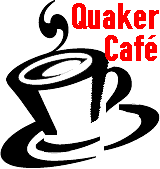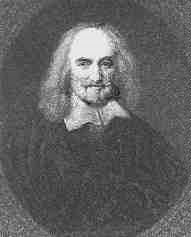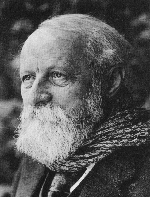#1: Discussing good and evil at the local caf�

by Carl Stieren
-
Ottawa, Sunday, March 23, 1997

by Carl Stieren
Ottawa, Sunday, March 23, 1997
"Are human beings basically good, or basically evil?" This was the topic of the first "Meeting for Social Science", at which eight of us from the Ottawa Quaker meeting met over steaming cups of caf�-au-lait and toasted cheese sandwiches after Meeting for Worship. For me this day marked the rebirth of caf� society - the true caf� society, where social issues are passionately discussed.
We were a mixed bag, but unquestionably middle-class. The group included two Ph.D. students in Political Science, one person who worked for Parliament, an author on economic issues, an international development worker, a federal civil servant, a retired engineer, and me, a technical writer for a software firm.
There was hope in the air, despite the dismal times, with unemployment at 10 per cent in Canada and job cuts and downsizing by both government and the private sector. The sun was shining, there was jazz playing on the stereo, and the old wood caf� at Fourth and Bank, half a block from the Meeting House, was a friendly place to gather.

Thomas Hobbes
Our ideas of whether humans are by nature good or evil were shaped by the thinkers of the early modern era. In a few short phrases, Friends tossed around the ideas of Hobbes, Locke and Rousseau. Since it had been decades since I read any of the works of these men, I did a bit of reading after the meeting. It seems the English philosopher Thomas Hobbes (1588-1679) believed that humans were basically selfish, and existed in a state of nature in which greed would lead to deadly competition. To escape this outcome, and a life which was "nasty, brutish and short", humans entered into a social contract and then submitted to the sovereign in order to escape anarchy. The French philosopher of the Enlightenment, Jean-Jacques Rousseau (1712-1788) believed in the natural goodness of human beings in the state of nature, and that society corrupts this basic goodness. Once corrupted, humans consent to wear the chains of society so that they may then enslave those beneath them. Rousseau's le contrat Social in 1762 argued that humans, to promote the greater good, give up part of their freedom to the state by making a social contract. And the English philosopher John Locke (1631-1704), whose ideas formed the basis for the founders of the United States, opposed Hobbes, and upheld what he called the natural rights of life, liberty and property, against the Sovereign.
Reason and democracy alone will not save us. Jean-Jacques Rousseau's ideas of democracy and the goodness of human beings received a hard knock from the violence of the French Revolution. The failure of pure reason also received a blow from such cruel experiments as Dr. Itard's attempts to civilize Victor, the feral child discovered after the French Revolution, as portrayed in Truffaut's film, l'Enfant sauvage.
We talked about Locke's vision of "life, liberty and estates (property)", and one Friend mentioned that the phrase was changed to "property" to "pursuit of happiness" in the U.S. Declaration of Independence by a conservative colleague of Thomas Jefferson's.
Among the points listed by participants as possible answers to the main question were these:
But where did society go wrong? Why is there a "jobless recovery", cutting of social service programs, and a value being made of selfishness today? When T.H. Marshall defended the welfare state in 1950, he described it as the extension of democracy to include citizenship rights and to provide a social safety net for the disadvantaged. Starving citizens, he argued, may lack the ability to make rational choices. Since then, the welfare state has been criticized to encouraging dependency, such as that of long-term welfare recipients whose children become welfare recipients.
"Because the welfare state does create dependency, the support for the welfare state by people on the Left has been somewhat attenuated," one Friend said. Yet undeniably, cuts to Canada's health care system, to education and to welfare are still going on, on the federal, provincial and municipal level. These cuts hurt the people least able to fend for themselves. "If a few people are earning a huge amount of money and some people cannot survive, the state must redistribute income, but perhaps not deliver the services as government." Thus, perhaps neoconservatives could be persuaded of the need to provide for the helpless by income redistribution without involving the government in producing goods and services for those less fortunate. For such citizens, there is nothing more alienating than dealing with a public bureaucracy.
Another Friend, talking about the impoverishment of those at the bottom of the heap and the destruction of the environment, said, "Perhaps dysfunctional is the modern word for Evil."
Where do Quakers stand in all of this? Some participants argued for a Quaker position on these issues, not just a set of academic political philosopher's arguments. One person said that the Quaker belief of "that of God in everyone" could avoid many of the problems of alienation, exploitation and dependency. "You've stopped trying to be better or worse than someone else when you've recognized the divine within them," he said. This belief is that there is in each of us the potential for good, alongside the potential for evil.
 Martin Buber
Martin Buber
Today, someone said, people are looking for connections, yearning for belonging in New Age groups. This is not objectionable, in that there is in addition to our biological needs, a spiritual self that has to be nurtured and maintained, but if you simply try to nurture your inner child, you may wind up not maintaining that link to others, and set up a "We-They" relationship rather than an "I-Thou" relationship, as Martin Buber advocated.
In international development, there is a depersonalization of international development aid, and development staff wind up shuffling papers rather than directly dealing with human needs. To overcome that, a number of groups, including Canadian Friends Service Committee, are trying to link poverty in Ottawa or Toronto with poverty in Mexico. While 99 per cent of us can't do anything about Zaire, we can still fall into the trap of feeling guilty about doing nothing about Zaire. At the other end of the international development equation, there is a danger that we can set up a whole set of false expectations by those receiving international development assistance.
There was a feeling that we can wind up with the values of the marketplace: "I have a right to my values, and no one else has any right to tell me what these values should be." There is also a belief by posed by some economic theorists, that values and ethics are meaningless and there is only one right answer, and the market will provide that answer. Such "technologies of knowledge" leave no choices, no room for values. These arguments are elaborated by Jacques Ellul in Technology and by George Grant in Technology and Empire and Technology and Justice.
When we discussed the origin of modern social theory of human economic and social behaviour, friends mentioned several authors' works, sometimes more than once. The books of authors mentioned in the discussion by Friends included the following:
But what can we do? Individual Friends made these suggestions:
There will be another meeting, at the home of one of the participants, on Sunday, April 20, after Meeting for Worship. Friends suggested as topics for future meetings: "Free Markets vs. Free People" and "Legitimizing and Restricting Knowledge". We decided to meet in one member's home nearby next month, and then in a caf� after that.